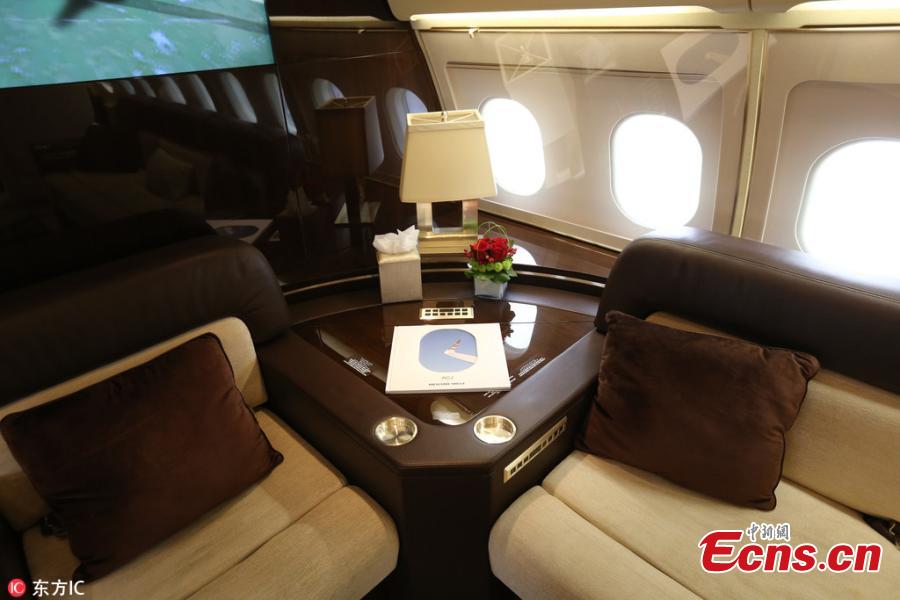A warning shot for Chinese chipmakers to catch up
The export ban imposed by the U.S. Department of Commerce on Chinese tech firm ZTE Corp has sent a warning shot at Chinese companies relying on overseas components, forcing China to develop its own chips and catch up with their U.S. rivals, industry insiders said.
U.S. Secretary of Commerce Wilbur Ross announced Monday (U.S. time) that American companies will be banned from exporting components to Shenzhen-based Chinese company ZTE, which produces smartphones and other telecommunication equipment.
The U.S. Commerce Department claimed that ZTE lied to the U.S. government about punishing employees who violated U.S. sanctions against North Korea and Iran.
ZTE spends millions buying components from hundreds of U.S. companies, creating thousands of jobs in the U.S., the Chinese Ministry of Commerce said in a Tuesday statement. The ministry has urged the U.S. to handle the issue in line with the law, and create a fair and stable environment for Chinese companies.
In response to the U.S. ban, ZTE said the company is aware of the denial order activated by the U.S. Department of Commerce.
At present, the company is assessing the full range of potential implications the ban will have on the company and is proactively communicating with relevant parties, the company told the Global Times.
About 30 to 40 percent of components that ZTE sources are from the U.S., including microchips, operating systems, optical network products and software, Irene Chen, chief content officer with the Chinese industry information platform DeepTech, told the Global Times.
Sales of telecommunications equipment account for 60 percent ZTE's total sales, Chen said. "Over 60 percent of its foreign suppliers for telecommunications equipment come from the U.S.," she noted.
Some U.S. suppliers saw their share prices slump on Monday following the ban. Shares of NASDAQ-listed Oclaro Inc, which reportedly generated 18 percent of last year's revenue from ZTE, fell by as much as 15 percent on Monday. Acacia Communications, which sells high-speed coherent optical interconnect products, saw its shares decline more than 35 percent.
The ban is devastating for ZTE, as components shipped from the U.S. are not immediately replaceable within China, Liu Kun, vice general manager of the IC Industry Research Center at CCID Consulting, told the Global Times.
"ZTE dilemma reflects a major difficulty the Chinese chip making industry is facing," said Liu.
Liu added that it is urgent that Chinese companies develop their own high-end chips.
Can't depend on U.S.
The issue needs to be part of negotiations between the Chinese and U.S. governments, which are facing escalating trade tensions, Wang Yanhui, head of the Shanghai-based Mobile China Alliance, told the Global Times.
"It has become crystal clear that Chinese firms can't depend on foreign suppliers, and China's semiconductor industry will remain an essential industry in the future," said Xiang Ligang, chief executive of the telecom industry website cctime.com.
When the U.S. blocked Intel from selling supercomputers to China years ago, China developed its own supercomputer - the Sunway TaihuLight - which has become the fastest computer in the world, Xiang noted. "Mounting pressure from the outside is not necessarily a bad thing," he said.
Chinese authorities have already set targets to narrow the gap with foreign players in the semiconductor sector by 2020, as about 90 percent of the semiconductors used in China are imported, costing hundreds of billions of dollars every year, domestic IT industry website ee.ofweek.com reported in March 2017.
The U.S. is examining ways to retaliate against China's restrictions on U.S. providers of cloud computing and other high-tech services, the Wall Street Journal reported on Tuesday.
"The tech industry is likely to become the next battleground amid China-U.S. tit-for-tat trade disputes," Liu said.


















































